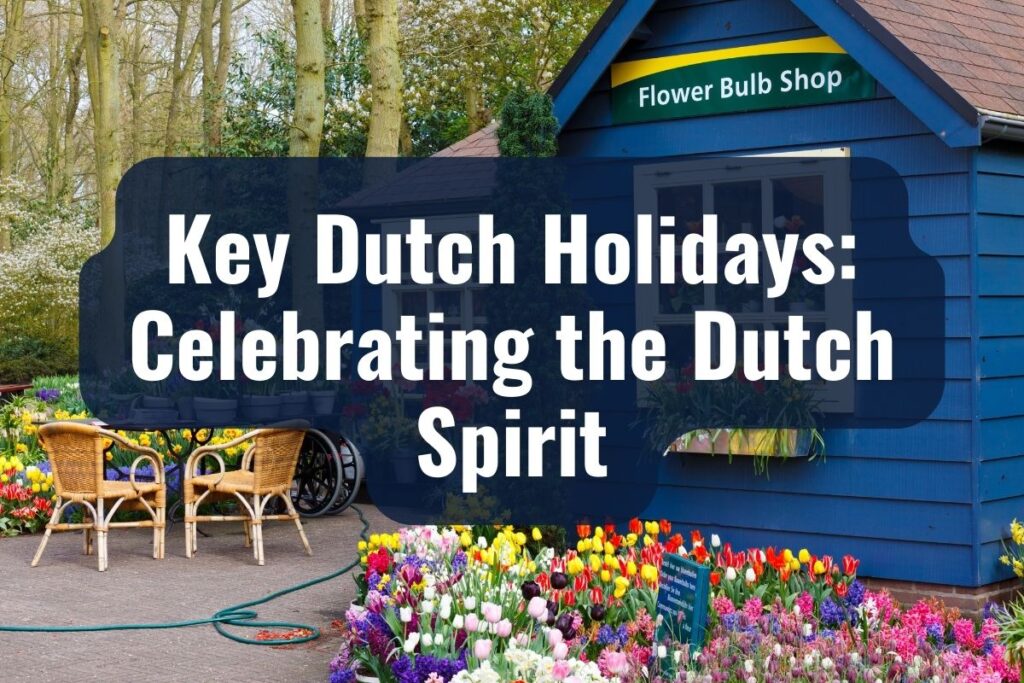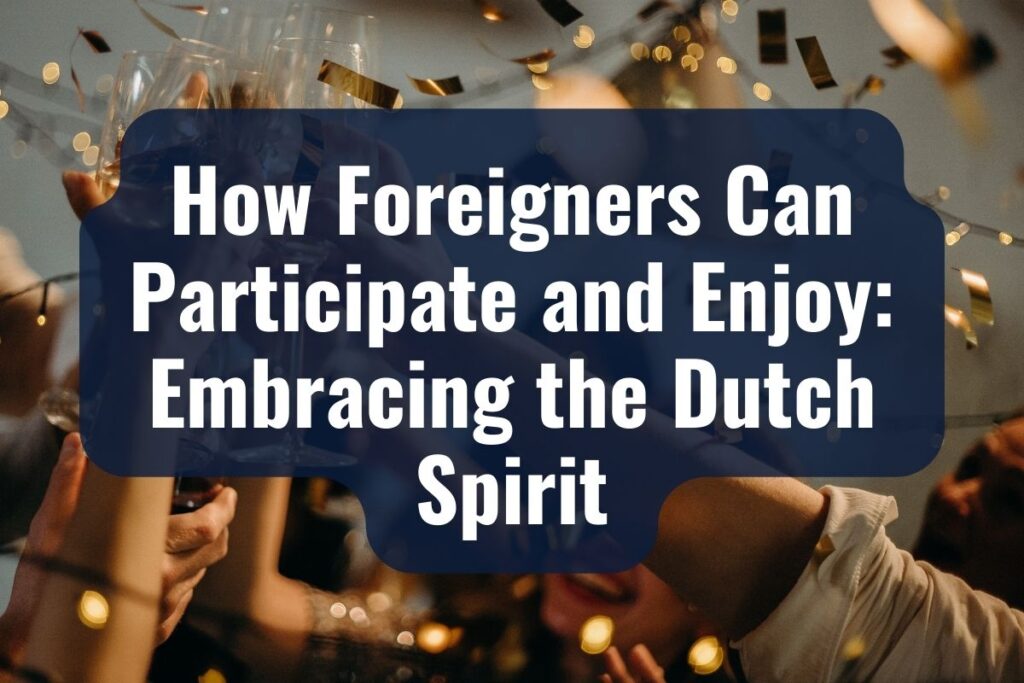For foreigners in the Netherlands, understanding and partaking in the Dutch festivities can be both a delightful experience and a beautiful way to forge deeper connections with the Dutch community.
In this article, we embark on a celebratory journey, uncovering the essence of Dutch holidays and offering a guide for those keen to immerse themselves in these enchanting traditions.
Whether you’re new to the Netherlands or just looking to understand its festivals better, let the spirit of Dutch celebrations warmly welcome you!
Key Takeaways:
- Dutch holidays offer a vibrant blend of traditions, history, and modern celebrations.
- These celebrations range from widely popular events like King’s Day to intimate, lesser-known gems like Sint Maarten.
- The historical context of Dutch holidays reveals an evolving tapestry of ancient rites, Christian influences, and modern perspectives.
- For foreigners, actively participating in Dutch holidays can be a bridge to deeper cultural understanding and bonding.
- Respecting the essence and nuances of each holiday enhances the experience for both locals and foreigners.
Key Dutch Holidays: Celebrating the Dutch Spirit

The Netherlands, with its dynamic history and blend of traditions, has given birth to a series of holidays that stand as milestones throughout the year. Each celebration is a testament to the Dutch spirit – vibrant, welcoming, and deeply rooted in tradition. Let’s journey through some of the most iconic Dutch holidays, painting a picture of joyous celebrations and heartfelt commemorations.
| Holiday | Date | Importance | Main Celebration |
| King’s Day | April 27th | Celebrate King Willem-Alexander’s birthday & national pride | Parties, music, flea markets, and boat parades. |
| Liberation Day | May 5th | End of Nazi occupation in WWII | Music festivals, parades, and reflective ceremonies. |
| Sinterklaas | December 5th | Tribute to Saint Nicholas & festive gift-giving | Parades, gift exchanges, and children’s songs. |
| Christmas | December 25th-26th | Christian celebration of Jesus’ birth | Church services, carols, and festive feasting. |
| New Year’s Eve | December 31st | Farewell to the old year and welcoming the new | Fireworks, gatherings, and traditional Dutch doughnuts. |
King’s Day (Koningsdag)
Every year on April 27th, a sea of orange sweeps the country, heralding the much-anticipated King’s Day. This jubilant holiday celebrates the birthday of King Willem-Alexander. It’s a day when the Dutch let their hair down and revel in unity.
Importance: A tribute to the reigning monarch and a day of national pride.
How it’s celebrated: The streets come alive with parties, music, and flea markets (vrijmarkten). The color orange dominates, from clothing to decorations, in homage to the House of Orange-Nassau. The canals of major cities like Amsterdam are filled with joyous boat parades, and evening concerts keep the festivities going into the night.
Liberation Day (Bevrijdingsdag)
May 5th is a day of profound significance, marking the end of Nazi occupation during WWII.
Importance: A remembrance of freedom and a salute to the resilience of the Dutch spirit.
How it’s celebrated: Across the nation, music festivals, parades, and events are organized, showcasing the importance of freedom and democracy. A moment of silence and reflection is also observed, ensuring that the lessons and sacrifices of the past are never forgotten.
Sinterklaas
As winter sets in, the excitement for Sinterklaas grows. Celebrated on December 5th, this day is the Dutch precursor to Santa Claus and is eagerly awaited by children and adults.
Importance: A day dedicated to Saint Nicholas, the patron saint of children.
How it’s celebrated: Weeks before the day, Sinterklaas “arrives” in the Netherlands from Spain, with parades marking his entrance. The night before, children place their shoes by the fireplace, hoping to find them filled with gifts the next morning. Poems, songs, and the exchange of gifts make this a heartwarming celebration of generosity and joy.
Christmas (Kerstmis)
The universal celebration of love, peace, and joy finds its unique Dutch touch on December 25th and 26th.
Importance: A Christian celebration commemorating the birth of Jesus.
How it’s celebrated: Dutch homes glow with warmth as families gather around festively decorated tables. Church services are attended, carols fill the air, and the spirit of giving is embraced with gift exchanges. Traditional dishes, like ‘kerststol’ (a Christmas loaf), elevate the festive feasting.
New Year’s Eve (Oud en Nieuw)
The closing of a chapter and the anticipation of a fresh start is felt deeply on December 31st.
Importance: Bidding adieu to the year gone by and ushering in the new with hope and jubilation.
How it’s celebrated: The skies light up with spectacular fireworks at the stroke of midnight. Friends and families gather, sharing ‘oliebollen’ (traditional Dutch doughnuts) and raising a toast to new beginnings.
Lesser-known Yet Essential Dutch Holidays: Unveiling Hidden Gems
While the Netherlands boasts some globally renowned festivities, there are hidden gems in its holiday calendar that are equally precious. These lesser-known celebrations, though perhaps not as widely recognized, offer a deeply authentic Dutch experience. Immerse yourself in these unique traditions and discover the heart and soul of the Dutch people in their purest form.
Mostly celebrated in the southern provinces of the Netherlands, this vibrant festivity has its roots in Catholic traditions and marks the beginning of Lent.
Importance: A time of merriment and indulgence before the solemn period of Lent.
How it’s celebrated: Over a span of a few days, towns come alive with parades, dances, and music. Revelers don colorful costumes and masks, and the atmosphere is thick with joy and camaraderie. Local customs, humorous acts, and singing traditional ‘carnavalsliedjes’ (carnival songs) make this a truly immersive experience.
Remembrance Day (Dodenherdenking)
On May 4th, the Netherlands pauses and reflects, paying homage to its heroes and civilians.
Importance: A solemn day dedicated to remembering all civilians and members of the armed forces who have passed away, especially those who have died since the outbreak of World War II.
How it’s celebrated: At 8 p.m., a poignant two-minute silence is observed nationwide, bringing daily life to a standstill. Wreaths are laid, and dignified ceremonies are held at war memorials, most notably at the National Monument in Amsterdam’s Dam Square.
St. Martin’s Day (Sint Maarten)
Celebrated on November 11th, this day is particularly special for the children in the northern provinces.
Importance: In honor of St. Martin of Tours, a kind-hearted saint known for his generosity.
How it’s celebrated: As evening falls, children head out with lanterns, going door to door singing ‘Sint Maarten’ songs. In return, they receive candies and treats, mirroring the generous spirit of the saint.
Ascension Day (Hemelvaartsdag)
Forty days after Easter, this Christian holiday commemorates Jesus Christ’s ascension into heaven.
Importance: Reflecting on the belief in Jesus’ ascension, marking the culmination of his earthly mission.
How it’s celebrated: While church services are central to this day, a unique Dutch twist is ‘dauwtrappen’—an early morning walk or bike ride in nature, symbolizing purification and reflection.
Historical Context: The Tapestry of Time and Traditions
Dutch holidays are much like beautiful brushstrokes on a canvas of time, each one telling a tale of the past, carrying echoes of ancient traditions, and reflecting evolving societal values. Delving into the historical context of these holidays is akin to flipping through the pages of a captivating storybook, where every chapter brings forth a deeper appreciation for the celebrations of today.
Origins and Evolution
Many of the Dutch holidays have roots steeped in ancient European pagan practices. With the spread of Christianity, these traditions saw transformations, incorporating Christian symbols and narratives, resulting in the delightful amalgamation we witness today. For instance, the mid-winter festivities, once a pagan rite, beautifully morphed into what we now know as Christmas, with its heartwarming tales and cherished customs.
Influence of Dutch Colonial History
The Netherlands, with its vast colonial past spanning continents, has not only shared its culture but has also imbibed elements from afar. This exchange is evident in the culinary delights, tales, and certain nuances in the way specific holidays are celebrated, revealing a tapestry woven with threads from around the world.
Christianity’s Imprint
The Christian faith has undeniably played a pivotal role in shaping many of the country’s holidays. From the solemnity of Good Friday to the joyous bells of Easter, the Dutch calendar is dotted with dates that resonate with Christian teachings and tales. Events like Sinterklaas also showcase how Saint Nicholas, a Christian bishop, transformed into a figure of joy and merriment for children and adults alike.
The Modern Era and Globalization
Just as the ancient traditions evolved with the advent of Christianity, today’s world of connectivity and global exchange has infused Dutch holidays with fresh nuances. Be it the universal excitement of New Year’s Eve or the eco-consciousness that’s slowly weaving its way into celebrations, Dutch holidays are ever-evolving, making room for modern perspectives while holding dear their traditional essence.
How Foreigners Can Participate and Enjoy: Embracing the Dutch Spirit

The beauty of the Dutch celebrations is not just in observing them but in actively participating and soaking in the vibrant energy and traditions they offer. For foreigners in the Netherlands, diving into these festivities can serve as a bridge to understanding the culture, making new friends, and creating cherished memories. Here’s how you can immerse yourself in these celebrations while being respectful and truly savoring the Dutch experience.
- Dive into the Local Traditions:
- Learn a Song or Two: For events like Sinterklaas or Sint Maarten, familiarize yourself with a popular song. Not only is it a fun activity, but it’s also a delightful way to bond with locals.
- Taste the Flavors: Dutch holidays come with their unique culinary delights. Relish oliebollen on New Year’s Eve, savor kerststol during Christmas, or enjoy a slice of vlaai during Carnaval. Each bite tells a story!
- Dress the Part:
- Many Dutch holidays have specific color themes or costumes. On King’s Day, for example, wearing orange (the national color) will help you blend in and enjoy the festivities to the fullest.
- Attend Public Celebrations:
- Whether it’s the parades on Liberation Day or the bustling flea markets on King’s Day, public events offer a firsthand experience of the holiday’s essence. They’re also great places to meet locals and join in communal celebrations.
- Understand the Significance:
- Before participating, take a moment to understand the holiday’s history and importance. This will enrich your experience and ensure you appreciate the nuances of the celebration.
- Respect the Solemn Moments:
- While many Dutch holidays are about merriment, some moments, like the two-minute silence on Remembrance Day, are deeply solemn. Participate with the same respect and reverence as the locals.
- Join Local Groups or Communities:
- Many towns or neighborhoods have groups or committees that organize events for specific holidays. Joining these can provide insights, help in preparations, and even give you a role in the festivities!
- Share and Exchange Traditions:
- While you embrace Dutch holidays, share your own traditions and celebrations with your Dutch neighbors or friends. It promotes mutual respect and understanding, and you might find lovely parallels between your cultures.
Related: New to the Netherlands: Everything You Need To Know (2024)



